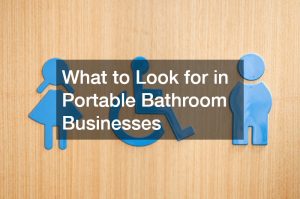- Separate business and personal finances for legal protection, easier accounting, and asset protection.
- Identify your personal goals and create a budget so you don’t spend more than you can afford.
- Set financial goals to motivate yourself and avoid overspending.
- Pay yourself a salary to separate your personal and business expenses.
- Keep business and personal expenses separate by having different bank accounts and credit cards.
As a small business owner, you know it’s hard to separate your personal and business lives. Every business decision you make affects your personal finances and vice versa. That’s why it’s crucial to have the plan to manage your finances as a small business owner. This blog post will share some tips on managing and keeping your finances separate from your business finances.
Separating Your Business and Personal Finances
You may be tempted to mix your personal and business finances. After all, it’s easier to manage one bank account than two, right? However, not separating your finances can lead to many problems.
For example, if you don’t separate your finances, it won’t be easy to track how much money you’re making from your business. This can lead to higher taxes and less accurate financial reports. Additionally, commingling funds is illegal in some cases.
What are the Benefits?

One of the most important reasons why you should separate your business and personal finances is for legal protection. If your business is sued, your assets could be at risk if you haven’t separated your finances. On the other hand, if your personal assets are sued, your business assets could be at risk if you haven’t separated your finances. By separating your finances, you can protect your personal and business support.
Another reason to separate your finances is for easier accounting. When you mix your personal and business finances, keeping track of your business expenses and income can be difficult. This can lead to confusion when it’s time to file your taxes and can even lead to audits. By separating your finances, you can easily keep track of your business finances and avoid any accounting headaches.
Managing Your Personal Finances
Now that you know why it’s essential to separate your business and personal finances, here are some tips on how to manage your personal finances:
Identify Your Personal Goals
First, you need to identify your personal goals. This ensures that you’re not spending more than you can afford. For example, if you’re planning to buy a house for your family, set a goal to save enough money for the down payment. Also, look for mortgage loans that will fit your budget. This is a vital step in creating your budget so don’t skip it.
Create a Budget
The next step to managing your finances is to create a budget. This will allow you to track your income and expenses and properly manage your finances. You can either create a traditional budget using a spreadsheet or use one of the many online budgeting apps. Remember to include all your expenses, such as rent or mortgage payments, utility bills, groceries, and other household expenses.
Set Financial Goals
Once you have a budget, set some financial goals for yourself. This could be paying off debt, saving for a down payment on a house or car, or setting money aside for retirement. Specific goals will motivate you to stick to your budget and avoid overspending.
Pay Yourself a Salary

One of small business owners’ biggest mistakes is not paying themselves a salary. They use their business profits to pay for personal expenses, making it difficult to manage their finances. Instead, set up a system where you pay yourself a regular salary every month. This will help you separate your personal and business finances, and ensure you have a steady income.
Keep Business and Personal Expenses Separate
To avoid confusion and keep things organized, keep your business and personal expenses separate. This means having separate bank accounts and credit cards for your business and personal expenses. This way, you can easily track your expenses and avoid mixing personal and business expenses.
The Bottom Line
Managing your finances as a small business owner can be challenging, but it’s crucial if you want to succeed personally and professionally. By creating a budget, setting financial goals, paying a salary, keeping business and personal expenses separate, and hiring a professional, you can take control of your finances and ensure that your business remains financially stable. Remember, when it comes to managing your personal finances, it’s all about being organized and planning ahead.







